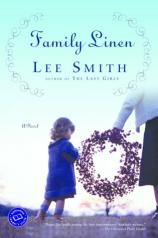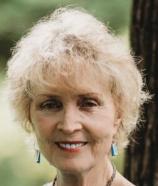Reading Group Guide
Discussion Questions
Family Linen

1. Family Linen is told from the viewpoints of many different people, all from the same family. What does Lee Smith achieve by employing this narrative technique? Is there one narrator who is the guiding force of the novel? If so, who? In your opinion, why does Sybill lead off the story?
2. Sybill's hypnosis brings forth an unexpected vision. What, precisely, does she see, and why would she have suppressed it for many years? What does this vision compel her to do? Why is she so tenacious about speaking to her mother, even when Miss Elizabeth is bedridden and unable to communicate? What do you think Sybill would have discovered had her mother been well enough to speak to her?
3. Elizabeth's children-Sybill, Arthur, Myrtle, Candy and Lacy-are each very different. Do any seem to have a particular love or affinity for one another? What similarities, if any, do they share?
4. Sybill castigates her family for leading "messy lives." How does this attitude distance her from her siblings? Which of Elizabeth's children embrace order, and who distrusts it? Why?
5. Miss Elizabeth's children are constantly reflecting on her as a mother and on themselves as parents. In which ways have they absorbed her child-rearing techniques as their own? How have they rebelled against them? Why do you think that Sybill has remained unmarried and childless?
6. Sybill believes that she's enduring a "total eclipse of the heart." In your opinion, is this an accurate assessment of her feelings? How is this uncharacteristic of her personality? How do others in the novel cope with the same feelings about love and relationships? Who else in the book undergoes a similar "eclipse"?
7. What does Myrtle prize the most about her life? In which ways do she and her husband, Dr. Don, aspire to be the "perfect couple," and what do they do in order to achieve this goal? How do appearances belie reality, particularly in regard to Myrtle's marriage and the relationships she has with her children?
8. Lacy believes that she has a special link with Elizabeth due to their shared love of language. Why do both women feel that their affinity for the written word is so important? In which ways does this passion shape Lacy's life?
9. Lacy speaks of a "life before Jack." How does returning to Booker Creek represent a return to her past? A new beginning? Does it represent something similar to her siblings, both those who have stayed in the town and those who have left? Why or why not?
10. Most of the book's narration is in third person, with some notable exceptions: the parts related by Sean, Nettie and Fay, as well as Elizabeth's memoirs. Why do you think that these portions of the book are told as first person narrative? What purpose does this technique achieve? What, if anything, do these three individuals have in common?
11. How do Fay's stream-of-consciousness reflections mix fantasy with reality? What impression do you have of Fay based upon them? How do those around her characterize her?
12. In Family Linen, Candy derives much of her pleasure from her work in the beauty parlor. What pleases Candy the most about her vocation? Why doesn't she mind making up her mother's face for her funeral? What is her attitude about beauty, both in terms of herself and others?
13. Arthur learns that Candy was a "love child." How does this revelation affect him? What are Candy's attitudes about love? How would you characterize her relationship with Dr. Don? In which ways is this a betrayal of her sister? Who is more culpable in the affair?
14. In your opinion, why do you think that Elizabeth left the house to Myrtle and Don? Why are the other children shocked by this? How do they cope with it? Who expresses the most remorse for Elizabeth's death? Who feels the most resentment?
15. Arthur believes that he has been a disappointment to his mother. In which ways does he rebel against her? Why does he use the excuse of nerves and a bad heart so often, and why do his siblings and friends accept that? What really is his main difficulty? Why does he skip Elizabeth's funeral?
16. "You couldn't expect much from a boy," remembers Lacy at her mother's funeral. (p. 130) How does this attitude influence Arthur and his sisters? In what ways does Elizabeth glorify the power of women? How, conversely, is she dependent on men?
17. Lacy believes that Myrtle and Don have a "blandness" about them. Why does she use this term? Do you think that their children, particularly Sean, would agree with this assessment? Why or why not? In which ways are Myrtle and Don surprising?
18. How would you characterize Elizabeth's memoirs? What insight do they give about her daily life, particularly her family and romantic relationships? Why don't you think that anyone else besides Lacy is interested in reading Elizabeth's memoirs?
19. In which ways are Elizabeth's memoirs melodramatic, and how are they a realistic depiction of her life? How do courtship, love and rejection constitute a turning point in her young life? What are the lasting repercussions of her aborted romance with Ransom McClain?
20. Elizabeth and Nettie become estranged when Elizabeth disapproves of her sister's behavior. Which aspects of Nettie's personality frustrate Elizabeth? In which ways is Nettie unconventional? Do you believe that Elizabeth is jealous of her?
21. Dr. Don, Myrtle's husband, insists that they move into the house that Elizabeth has left them. Why is he so adamant that they do so? What is his attitude toward Myrtle and her family? How does his status as an orphan affect those feelings?
22. Why is Elizabeth intrigued by Jewell Rife? In your opinion, does it appear that she truly loved him? What were his feelings toward her?
23. Nettie relates the story of Jewell's abuse of Fay in graphic detail. What is Nettie's reaction toward it? In your opinion, did Elizabeth know that the abuse was occurring? If so, why didn't she protect Fay against it?
24. Elizabeth refuses to let Nettie care for Fay's baby. Why does she insist on taking her as her own? How does doing so change her irrevocably? What motivations does Nettie have for wanting the baby? In which ways does her childlessness haunt her?
25. Name some instances where Elizabeth relies upon her siblings. What propels her to cast them aside, and why? How do Fay and Nettie react to their estrangement from her?
26. Verner Hess marries Elizabeth and treats her children as his own. How do they, in turn, feel about him? Based on Elizabeth's past attitude about Verner, why do you think she married him? In which ways is he similar to and different from the other men in Elizabeth's life, including her father, Ransom McClain and Jewell Rife?
27. When bones are found in Miss Elizabeth's well, what is the reaction of the family? Why isn't there a full investigation by the police? Do you believe that anyone might want a sense of closure? Who?
28. "There's no point hanging dirty linen on the line," says Nettie. How does this form a theme that propels Family Linen? How does it inform the book's title?
29. In your opinion, who killed Jewell Rife? Who would have the motivation to have done so, and why? What are the arguments for and against Elizabeth and Fay as the murderers? Do you think that the family will ever know for sure?
30. In your opinion, which of her children truly might be the most similar to Elizabeth? Why? What positive attributes did Elizabeth have, and what negative characteristics did she possess?
31. What does Sean seek the most from his family? How does he attempt to get it? When he shoots himself in the hand, is it an accident or a deliberate act? How does his father react? How does Sean want him to respond?
32. How is the next generation--Elizabeth's grandchildren, including Theresa, Karen, Sean, Kate and Bill--different from the one that came before? Do they subscribe to the same ideas of "dirty family linen" as Nettie? Or do they embrace a more open attitude?
33. In your opinion, why does Smith choose to end Family Linen with Karen's wedding? Does this bring a sense of closure to the novel? If so, how?
Family Linen
- Publication Date: August 27, 1996
- Paperback: 288 pages
- Publisher: Ballantine Books
- ISBN-10: 0345410602
- ISBN-13: 9780345410603







